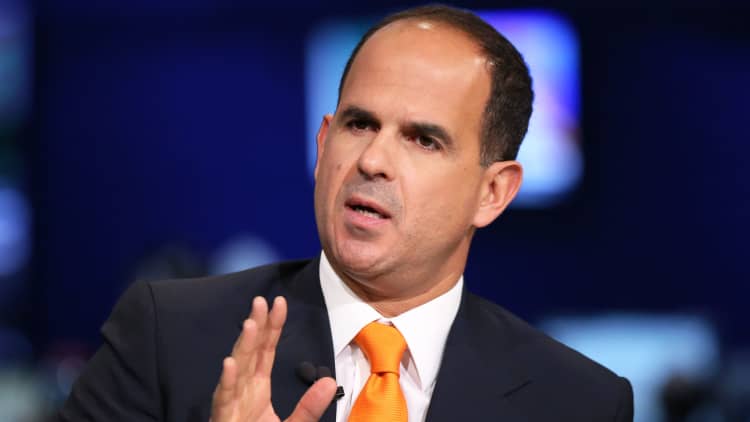Whether you're asking for a raise or going back and forth on a business deal, negotiating is one of the most crucial — and stressful — parts of the job.
CNBC talked with negotiation and behavior economics strategist Keld Jensen to find out how to master the art and science of getting what you want.
Jensen has written more than 20 books on the subject, including "The Trust Factor" and "Negotiating Partnerships," and is an adjunct professor at Arizona State University's Thunderbird School of Global Management.
Here are three strategies he recommends to approach any negotiation with confidence.
1. Mentally prepare
"Preparation is king," Jensen said. "I meet so many people, both clients and the average person, who just jump into negotiation without having done any sort of preparation whatsoever."
Preparing doesn't just mean looking into the market rates for salaries or the going rate of a product. It's also about checking in with yourself, he said.
Jensen recommends thinking over three things:
- Where you're starting from, including the situation you're in now, what you have to offer, and your value
- What you'd like to achieve, like your target salary or additional perks
- Your threshold of pain, or what your lowest point of agreement is or what you will do if there is no solution
2. Think about the other person
"The other thing I would say is crucial is getting as much knowledge about your counterpart's interests as possible," Jensen said.
"You and I and everybody in the western world, we have a tendency to be very egocentric," he said. "So we tend to step into a negotiation and think only about our own costs, our own values, our own possibilities. We need to know a lot more about the counterpart."
Forgetting about what the other person wants or needs is a big mistake, said Jensen, who recommends framing your ask as solution for the other party's problem.
We need to know a lot more about the counterpart.Keld Jensennegotiation expert, speaker and author
3. Think creatively
Winning a negotiation doesn't necessarily mean you come out with more money.
"Know the variables you want to negotiate on," he said. "Say you're sitting in a contract negotiation. A variable could be price, delivery time, warranty period — it could be all the different issues up for negotiation."
For example, Jensen notes that employers sometimes view raise requests as a zero-sum game, where the company loses and the employee wins. On the other hand, a request to work from home occasionally might be a very small cost to an employer but a very big gain to the worker.
Consider the full spectrum of things you could ask for and how willing the other side might be to give.

Correction: This article has been updated to correct that the Thunderbird School of Global Management is part of Arizona State University.


